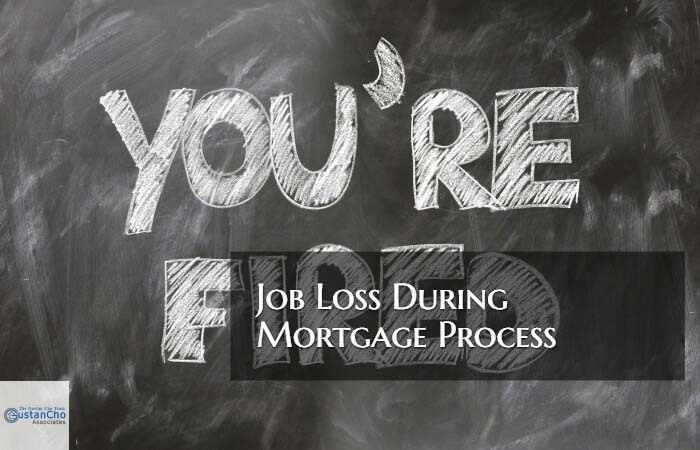Job Loss During Mortgage Process & How To Proceed To Close
Job Loss During Mortgage Process: What To Do and How To Still Close on Your Home in 2025
Losing your job while you’re in the middle of buying a home can feel like a nightmare. You’ve found the perfect house, submitted all your documents, and maybe even got your “clear-to-close” — and then, out of nowhere, you get laid off or let go.
The good news? Job loss during mortgage process doesn’t always mean the end of your homeownership dream. At Gustan Cho Associates, we specialize in helping borrowers recover quickly and get back on track—even after a financial curveball like losing their jobs.
In this guide, we’ll break it down into plain English. You’ll learn what happens when you lose your job during the mortgage process, what options you have, and how you can still qualify for a home loan in 2025.
Why Job Loss During Mortgage Process Matters So Much?
When applying for a mortgage, one key factor that lenders evaluate is your income. They assess how much money you earn each month, the stability of that income over at least three years, and your overall capability to repay the loan. This assessment is guided by a federal regulation known as the Ability to Repay Rule, which ensures that all lenders adhere to these criteria to promote responsible lending practices. So, if your income suddenly disappears during the mortgage process, the lender may have to stop everything. They can’t legally fund a loan if they know you can’t make the payments. That’s why job loss during mortgage process is a big deal.
Job Loss During the Mortgage Process? We Can Help!
Get in touch with us today to discuss your options and find a solution to keep your home purchase on track.
What Happens If You Lose Your Job Before You’re Clear to Close?
Let’s say your loan is still in underwriting, or maybe you’ve just gotten pre-approved. If you lose your job now:
- Your loan will likely be paused
- The lender will ask for an update on your employment
- You may be asked to wait until you have a new full-time job
The underwriter can no longer sign off on your file unless there’s proof of stable income.
Important: You are required to let your loan officer know if your income changes. Hiding job loss is considered mortgage fraud and a serious crime.
What If You Lose Your Job After You’re “Clear to Close”?
This is a tricky one. Some buyers believe that once they’re “clear to close,” the loan is a done deal. Not quite. Most lenders will verbally verify employment right before closing or funding the loan—sometimes just hours before closing. If they call your employer and find out you no longer work there, your closing will likely be delayed or canceled. Pro Tip: Never assume the deal is final until the ink is dry on the closing documents and the loan is funded.
Can You Still Close If You Lost Your Job?
In most cases, no, you cannot close without a stable job unless you have:
- Another verifiable source of income, like retirement or disability
- A co-borrower with sufficient income
- Proof of a new job offer and start date
However, Gustan Cho Associates works with non-QM lenders and alternative loan programs that may allow more flexibility — especially for borrowers with strong credit, large assets, or a letter of employment from a new job.
What to Do If You Have Job Loss During Mortgage Process
- Tell Your Loan Officer Right Away: Don’t hide it. Lenders will find out during final verifications. Being upfront helps avoid fraud and allows you to explore other options.
- Pause Your Loan (If Needed): You can ask your lender to temporarily pause your application. The process can restart once you get a new job and have one or two pay stubs.
- Get a Written Job Offer: Some lenders will accept a job offer letter with a clear start date. This may be enough to move forward if the job is full-time, W2, and within the same field.
- Consider a Co-Borrower: Including a partner or family member who has a reliable income may still enable you to be eligible for the mortgage.
- Explore Non-QM Loan Options: At Gustan Cho Associates, we offer bank statement, no-doc, and asset-based loans for borrowers who don’t fit traditional guidelines. These may work even without a recent job.
How Soon Can You Apply for a Loan After Losing Your Job?
If you experienced job loss during mortgage process, you may wonder when you can apply for a new loan. You can start applying again as soon as you find a new full-time job. To qualify, you need to show at least 30 days of pay stubs from your new job. It’s important that this new job feels stable and likely to last a long time. Sometimes, if you have a signed job offer letter and your start date is within 60 days of closing, that can also be enough to move forward.
2025 Updates: Flexible Employment Options Lenders Now Accept
In 2025, lenders are becoming more open to non-traditional employment types. If you lose your job during the mortgage process but you still have one of these income types, talk to your loan officer:
- Remote work contracts (if consistent and verifiable)
- Gig work or 1099 income (2-year history preferred)
- Self-employment with 1–2 years of business income
- Asset depletion loans if you have high savings
- Profit & Loss only loans for self-employed borrowers (no tax returns required)
At Gustan Cho Associates, we can help guide you through these options and match you with a loan program that fits your situation.
Can You Be Charged with Mortgage Fraud If You Hide Job Loss?
If you experience a job loss during mortgage process, it is important to tell your lender. Hiding your job loss can lead to serious problems, including being charged with mortgage fraud. You could face significant legal issues, such as federal criminal charges. The penalties could include up to 30 years in prison and massive fines. You might even lose your home if you can’t keep up with your payments. It’s never a good idea to take this risk. Always be honest with your loan officer, as they are there to help you and not to judge you.
Can You Be Charged with Mortgage Fraud If You Hide Job Loss?
If you experience a job loss during mortgage process, it is important to tell your lender. Hiding your job loss can lead to serious problems, including being charged with mortgage fraud. You could face significant legal issues, such as federal criminal charges. The penalties could include up to 30 years in prison and massive fines. You might even lose your home if you can’t keep up with your payments. It’s never a good idea to take this risk. Always be honest with your loan officer, as they are there to help you and not to judge you.
Worried About Job Loss Affecting Your Mortgage?
Reach out to us for personalized advice on how to proceed with your mortgage application.
Don’t Panic — Let Gustan Cho Associates Help You Requalify
Losing a job during the mortgage process is scary — but it’s not the end of your dream.
At Gustan Cho Associates, we work with lenders who understand real-life setbacks. Whether you need a loan with no income docs, are self-employed, or just started a new job, we’ll walk you through every step.
👉 Call us now or fill out the form below. Let’s turn that setback into a comeback.
Frequently Asked Questions About Job Loss During Mortgage Process:
Q: Can I Still Get a Mortgage if I have a Job Loss During Mortgage Process?
A: The lender usually pauses the process if you lose your job before your loan closes. You’ll need to find a new job or add a co-borrower with a steady income to qualify.
Q: What Should I do if I have a Job Loss During Mortgage Process?
A: Tell your loan officer right away. Hiding it could be considered mortgage fraud. Being honest lets your lender help you explore other options.
3. What if I Lose My Job After Getting “Clear to Close”?
A: Most lenders call your employer one last time before funding the loan. If they find out you’re no longer employed, your closing could be canceled. Job loss during mortgage process, even at the last minute, can stop the deal.
4. Can I Still Close if I have a Signed Job Offer?
A: Maybe. If your new job is full-time, with a confirmed start date within 60 days, and in a similar field, some lenders will accept it. This can help overcome a job loss during mortgage process.
5. Can I Use My Spouse’s or Family Member’s Income if I Lose My Job?
A: Yes! You may be able to add them as co-borrowers to help qualify. This is a good backup plan if you lose your job during the mortgage process and need help meeting income requirements.
6. Will the Lender Find Out if I don’t Report My Job Loss?
A: Yes, they most likely will. Most lenders do a final employment check before closing. If they learn about a job loss during mortgage process that wasn’t reported, it could lead to serious trouble — even fraud charges.
7. How Soon can I Apply for a Mortgage Again After Losing My Job?
A: You can reapply once you start a new full-time job and have at least 30 days of paystubs. After a job loss during mortgage process, lenders need proof of steady income before moving forward again.
8. Are There Special Loans that can Help After a Job Loss During Mortgage Process?
A: Yes. Gustan Cho Associates offers non-QM loans like bank statements, no-doc, and asset-based mortgages. These can work even if you don’t have a traditional job income.
9. Can I Still Buy a Home if I’m Self-Employed or Doing Gig Work?
A: Yes, but you’ll usually need at least 1–2 years of income history. If you experience job loss during mortgage, lenders will want to see that your self-employment or gig income is consistent and reliable.
10. Why is Job Loss During Mortgage Process Such a Big Deal?
A: Because your income is what proves you can repay the loan. Without it, lenders are not allowed to close the loan. That’s why it’s critical to have a backup plan and talk to your lender immediately if you face a job loss during mortgage process.
This blog about “Job Loss During Mortgage Process & How To Proceed To Close” was updated on April 28th, 2025.
Job Loss During Mortgage Process? It’s Not the End
Reach out now to see how we can help you stay on track with your home loan.







